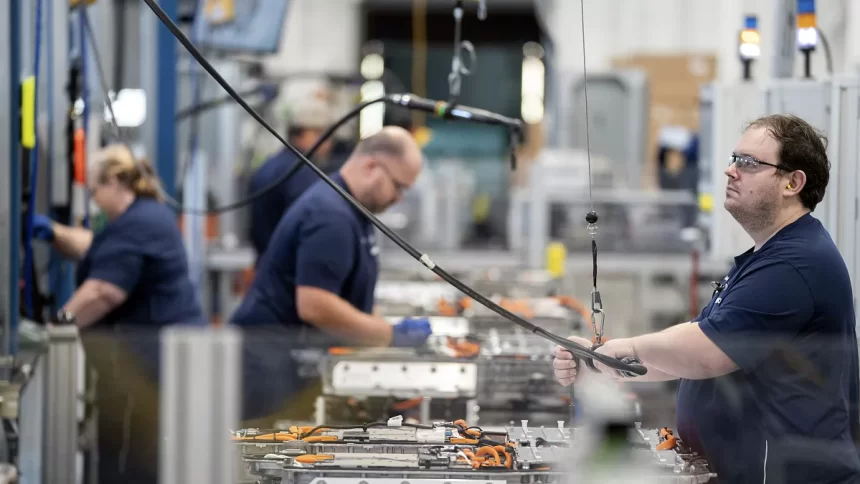PRIVATE-SECTOR activity in the euro area’s top two economies shrank in December, but while France faces a greater risk of falling into recession, the downturn underway in Germany is showing signs of easing as inflation cools.
S&P Global’s flash Purchasing Managers Index (PMI) for France dropped to its lowest level in almost two years, unexpectedly falling to 48 on service-sector weakness. Germany’s PMI, meanwhile, rose to a sixth-month high of 48.9 – more than economists had anticipated, though still below the 50 threshold separating expansion from contraction.
Investors are trying to gauge the extent of the retreat in the 19-nation euro-zone economy, which has been battered by record inflation and an energy crisis following Russia’s invasion of Ukraine. European Central Bank President Christine Lagarde said Thursday that there may be a “short-lived and shallow” recession this quarter and next, but promised more interest-rate increases following the latest half-point hike.
“Output across France fell at the quickest pace since February 2021,” said Joe Hayes, a senior economist at S&P Global Market Intelligence. “We’re likely to see French gross domestic product contract in the fourth quarter, which will raise the risk of a technical recession being confirmed in 2023.”
While France registered a second straight month of contraction, manufacturing declined at the slowest pace in seven months and business confidence among goods producers turned positive. What’s more, French statistics agency Insee said on Thursday (Dec 15) that a recession would narrowly be avoided, with growth of 0.1 per cent in the first quarter after a 0.2 per cent contraction in this one.
In Germany, businesses were still pessimistic about the year-ahead outlook for activity, but less so than in November. That mirrors a recent improvement in investor sentiment towards Europe’s largest economy.
The latest survey “paints a somewhat less gloomy picture,” according to Phil Smith, economics associate director at S&P Global Market Intelligence.
“A backdrop of falling demand, high inflation and tightening financial conditions explains why businesses, particularly manufacturers, remain downbeat about the outlook,” he said. Even so, “nerves have settled somewhat compared to the situation three months ago, when concerns about the energy crisis were at their peak, in a further sign that the expected recession could be shallower than first feared.”





